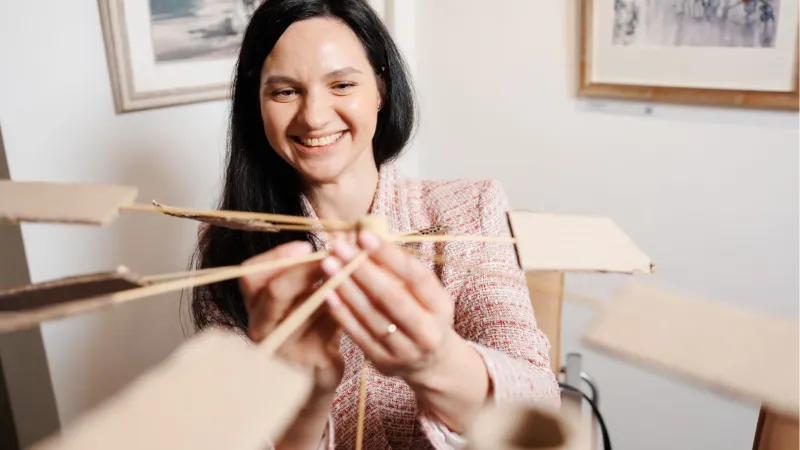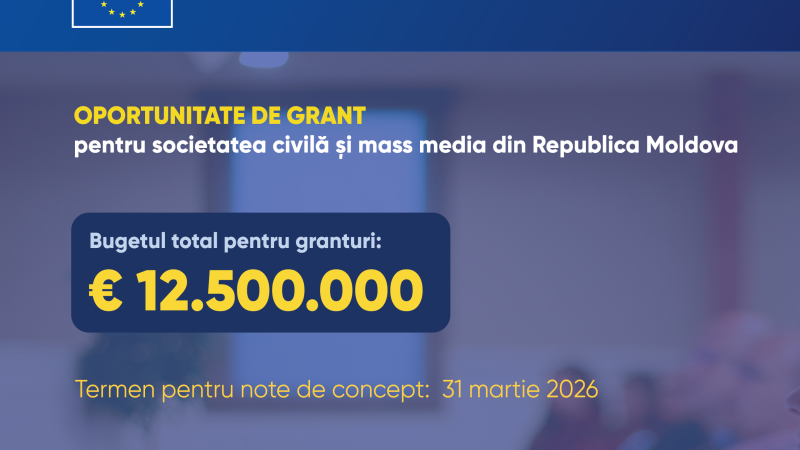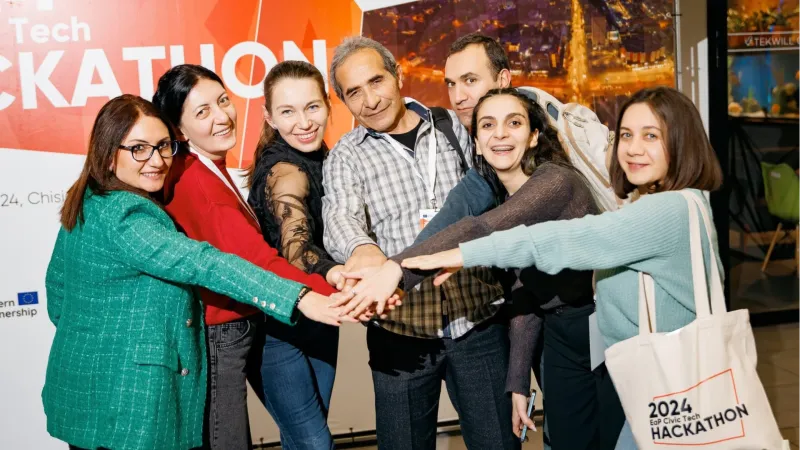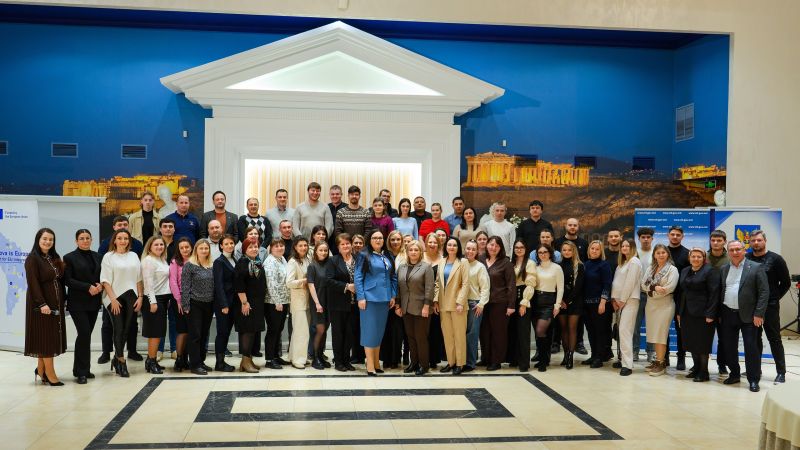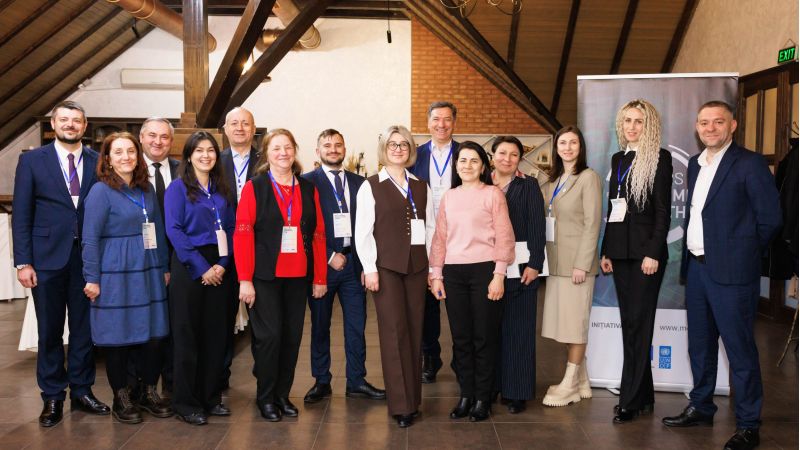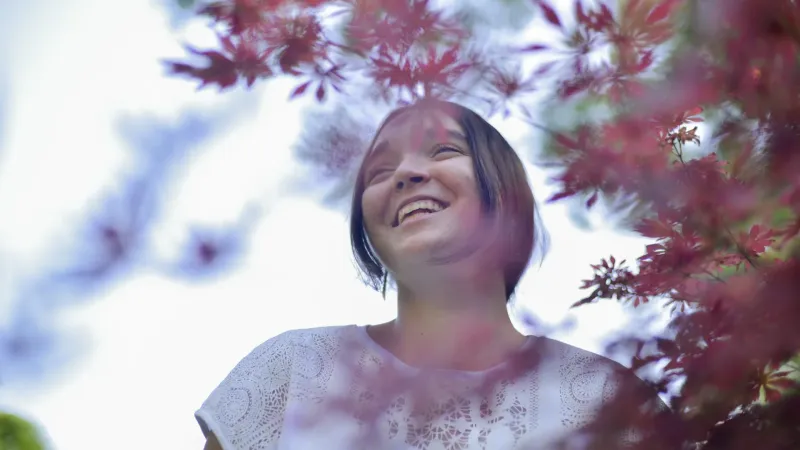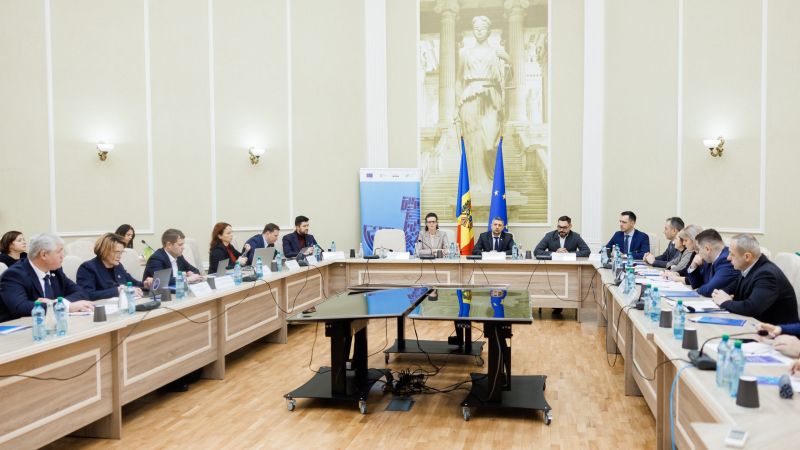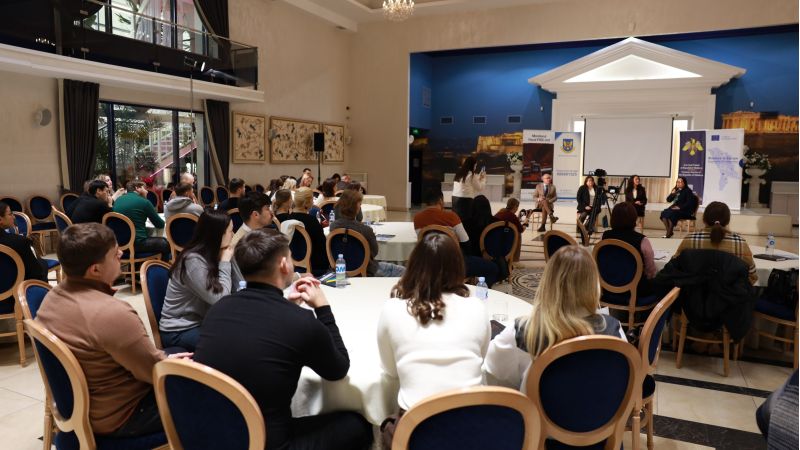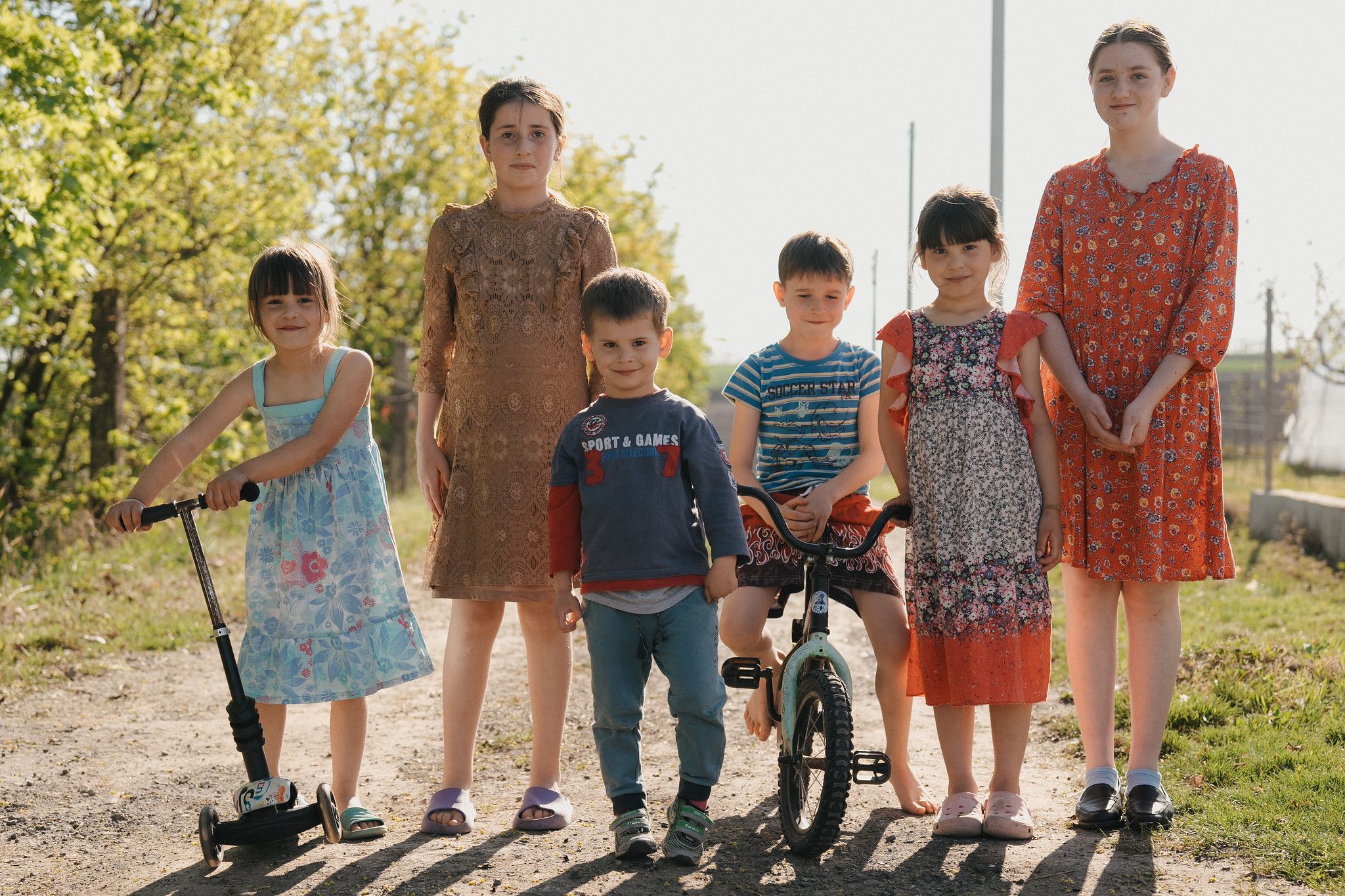
219 gospodării au devenit mai eficiente energetic, datorită asistenței acordate în cadrul programului „Casa verde”, derulat cu sprijinul UE și PNUD
219 gospodării casnice vulnerabile din punct de vedere energetic, dintre care 74 case de copii de tip familial, au beneficiat de măsuri de eficientizare energetică a imobilelor în cadrul inițiativei-pilot „Casa verde”, desfășurată cu susținerea financiară a Uniunii Europene (UE) și implementată de Programul Națiunilor Unite pentru Dezvoltare (PNUD).
„Sprijinirea și încurajarea utilizării soluțiilor de energie regenerabilă în gospodăriile vulnerabile energetic este esențială pentru realizarea unei tranziții incluzive către un viitor durabil. Asigurarea accesului la energie curată, la prețuri accesibile nu doar că reduce emisiile de gaze cu efect de seră, ci și atenuează sărăcia energetică, îmbunătățește sănătatea și calitatea vieții pentru cei mai vulnerabili membri ai societății noastre”, a declarat Solomon Ioannou, manager de programe, Delegația Uniunii Europene în Republica Moldova.
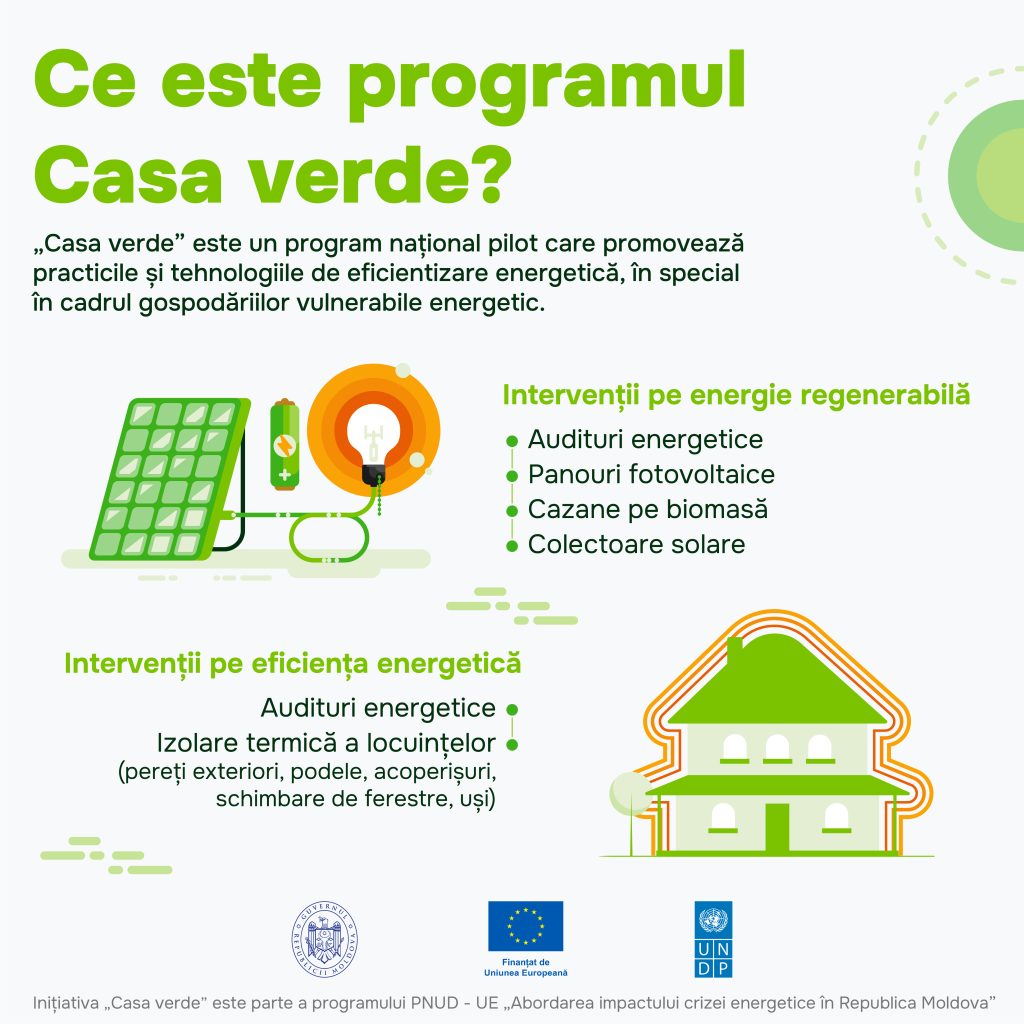
74 de gospodării din cele 219 selectate în programul „Casa verde” sunt case de copii de tip familial. Inițial au fost efectuate audituri energetice și în baza recomandărilor au fost decise măsurile de îmbunătățire a eficienței energetice cu cel mai mare impact asupra fiecărei gospodării în parte. În rezultat, au fost instalate 11 colectoare solare, 22 de cazane pe biomasă, 22 de panouri fotovoltaice și a fost realizată izolarea termică a 35 de case – în total 90 de intervenții, în unele gospodării fiind combinate multiple măsuri de eficientizare energetică.
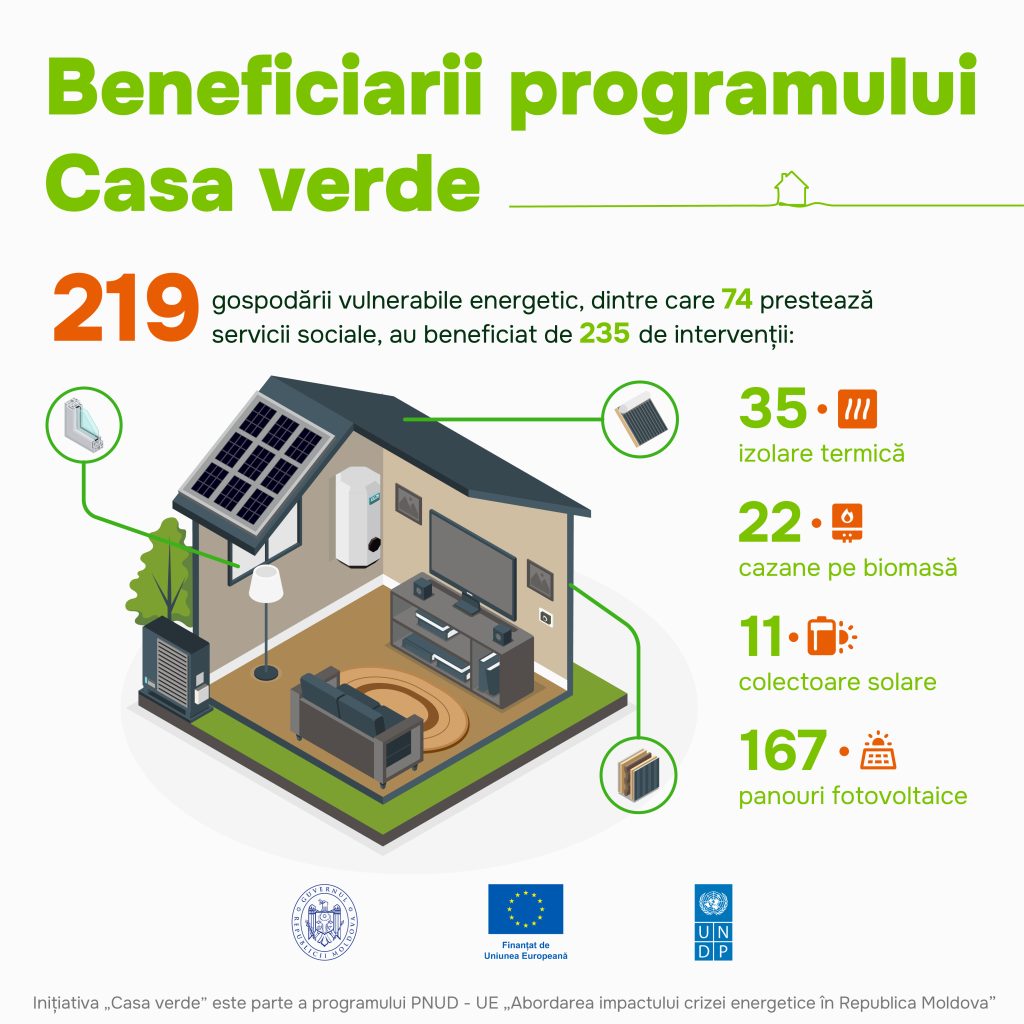
În alte 145 de gospodării au fost instalate panouri fotovoltaice. Acești beneficiari au fost selectați din sistemul informațional „Vulnerabilitatea energetică” în baza mai multor criterii, cum ar fi să dețină în proprietate casa în care locuiesc, să înregistreze un consum lunar mediu de energie de 400-600 kWh și să aibă grad de vulnerabilitate energetică foarte ridicat. Prioritate au avut familiile cu mulți copii. Beneficiarii au fost selectați cu sprijinul Centrului Național pentru Energia Durabilă și Ministerului Muncii și Protecției Sociale.
Una din familiile beneficiare este cea a Tatianei și a lui Igor Burlacu din satul Pervomaiscoe, Hîncești. Soții au în plasament șase copii. În august 2023 le-au fost instalate panourile fotovoltaice și primele două luni nu au achitat nimic pentru energia electrică consumată. În perioada rece a anului este produsă mai puțină energie solară, dar oricum acoperă peste 80% din consumul gospodăriei.
„Pentru noi, sistemul fotovoltaic instalat este mană cerească, n-am cheltuit niciun sfanț, dar beneficiem, avem luni întregi în care nu plătim nimic pentru energia electrică. Eu n-am știut că așa ceva există, poate să fie. La economii ajută mult, putem să oferim copiilor mult mai mult decât înainte, închipuiți-vă dacă trei miii de lei din bugetul familiei îl dădeam lunar pe energia electrică. Noi suntem foarte recunoscători”, spune Igor Burlacu.
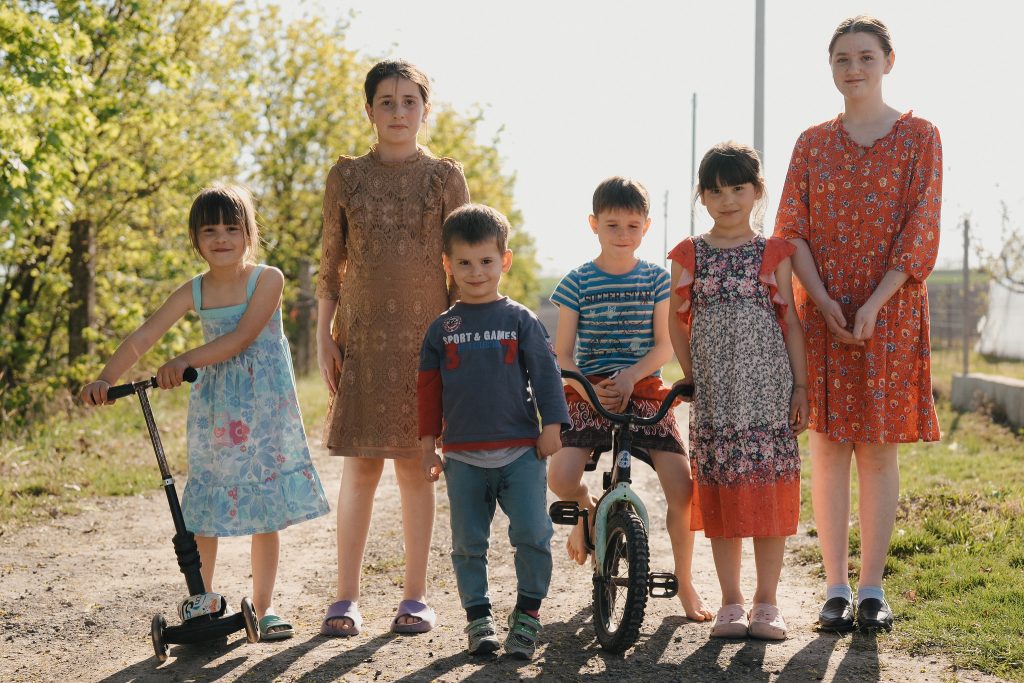
În cazul Elenei Rusu din satul Glinjeni, raionul Fălești, care are tot șase copii în casa ei de tip familial, rezultatele auditului energetic au recomandat izolarea termică a casei și instalarea unui cazan pe biomasă. După prima iarnă de când casa este eficientizată energetic, Elena este foarte mulțumită.
„Făceam focul în trei sobe și cheltuiam foarte multe lemne și cărbuni, dar acum economisim în jumătate și este mai cald. Suntem foarte bucuroși – este mai curat în casă, economisim timpul, e mai comod și casa e mai frumoasă. Cu banii economisiți de la izolarea termică a casei și instalarea cazanului vrem să facem al doilea etaj, ca să mărim spațiul pentru copii”, povestește Elena Rusu.
„Casa verde” este o inițiativă pilot realizată în cadrul programului UE-PNUD ,,Abordarea impactului crizei energetice în Republica Moldova” cu un buget de peste un milion și jumătate de dolari americani. „Casa verde” promovează practicile și tehnologiile de economisire a energiei și de eficientizare energetică, în special în cadrul gospodăriilor vulnerabile energetic. Intervențiile realizate aduc beneficii precum economii a energiei, reducerea costurilor facturilor și a emisiilor de gaze cu efect de seră.
Programul „Casa verde” urmează a fi preluat de Centrul Național pentru Energie Durabilă și extins la nivel național.
De mai bine de 20 de ani, parteneriatul PNUD-UE a îmbunătățit viețile oamenilor, le-au făcut auzite vocile și a promovat soluții locale de mediu și climatice pentru a atinge Obiectivele de Dezvoltare Durabilă.
